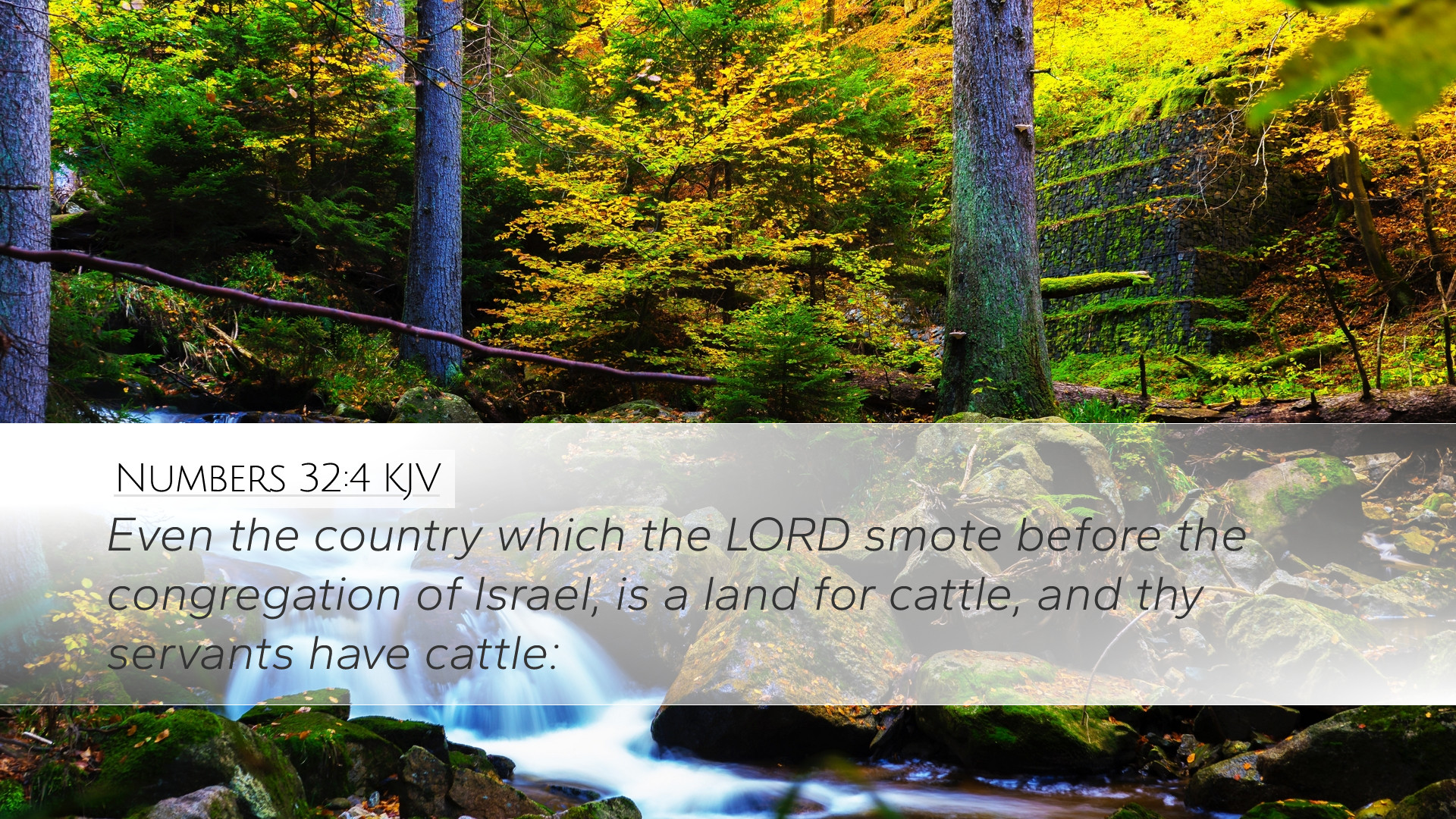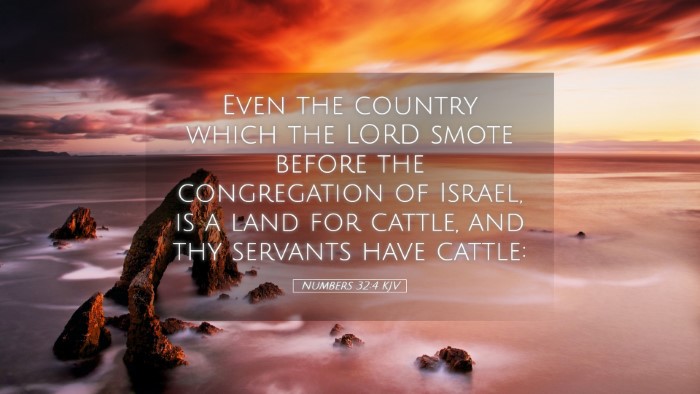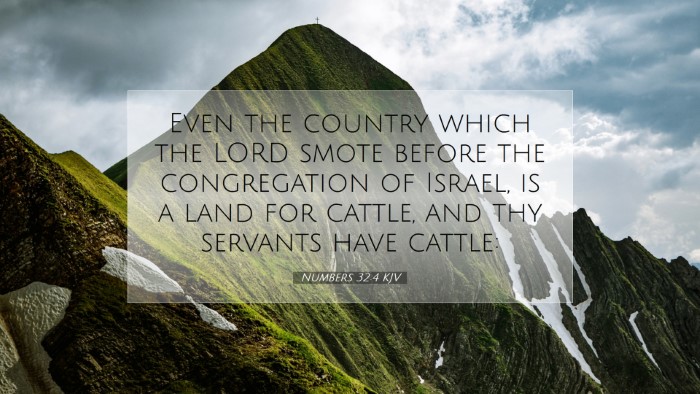Bible Commentary on Numbers 32:4
Verse Context: Numbers 32:4 reads: "Even the country which the Lord smote before the congregation of Israel, is a land for cattle, and thy servants have cattle." This verse occurs in a significant chapter where the tribes of Reuben and Gad express their desire to settle in Gilead, a fertile land suitable for their livestock.
Understanding the Request of Reuben and Gad
The request from the tribes of Reuben and Gad to settle outside of the Promised Land raises critical theological and ethical questions about divine promise and individual desires. In this context, we draw upon insights from notable public domain commentaries.
Matthew Henry's Commentary
Matthew Henry emphasizes the motivations of the tribes. He notes that they are motivated by practical concerns, specifically the suitability of the land for their cattle. Cattle were a symbol of wealth and prosperity in the ancient Near Eastern context. Thus, their request reflects both a legitimate concern for their livelihood and a potential lack of faith in God's promised provision as they considered settling away from Canaan.
- Faith Versus Practicality: Henry highlights the tension between faith and practicality. While the land is fruitful, settling on the eastern side of Jordan could represent a retreat from God's best, echoing the essence of temptation that comes not only from physical needs but also from the allure of seeming immediate solutions.
- Lessons from their Decision: The commentator warns that the inclination to prioritize material concerns over God's plans can lead to spiritual compromise. The request demonstrates how difficult it can be to adhere strictly to divine directive amidst pressing worldly concerns.
Albert Barnes' Insights
Albert Barnes provides a historical perspective, noting that what the tribes desired was a result of the recent conquests. He points out the importance of context: this request occurs after significant victories, thus allowing the tribes a moment to assess their current situation:
- Evaluating Conquests: Barnes emphasizes the need to remember the purpose of God's deliverance. The land taken was not merely for practical gain but part of their mission. This underscores a broader theme of stewardship and awareness of God's ultimate plan.
- Divine Approval: Barnes also comments on the eventual response from Moses, which suggests some level of divine approval—not as a surrender of God's promises but as a nuanced response to the tribes' needs when they exhibit military commitment toward the conquest of Canaan.
Adam Clarke's Commentary
Adam Clarke's comprehensive analysis brings forth theological implications regarding the permanence of their choice. Clarke argues that while the land may be lucrative, their desire indicated a potential severance from the covenantal relationship with God:
- Separation from the Promised Land: Clarke warns that the tribes wished to distance themselves from what God provided, which signifies abandonment of the promises that came with obedience. He raises concerns about their allegiance to the collective Israelite mission.
- Long-Term Implications: He highlights how this decision cascaded into further separations and divisions within Israel, impacting future generations and leading to long-lasting consequences for both the tribes of Reuben and Gad and the overall unity of Israel.
Theological Reflections
This passage encourages modern reflection on the nature of God's promises versus human pragmatism. It poses critical questions about our desires, priorities, and potential compromises:
- Material versus Spiritual: The request from Reuben and Gad provokes contemplation on the balance of material needs with spiritual obligations. How often do we seek immediate satisfaction at the expense of long-term fulfillment in Christ?
- Faithfulness in Decision-Making: Their example serves as a reminder for pastors and scholars to consider the weight of decisions and their alignment with God's mission. Decisions should be made in prayer and contemplative reflection on divine will.
- Community and Covenant: The importance of communal worship and shared experience in faith is vital. In today's context, this passage encourages unity within the body of Christ over individualistic pursuits.
Conclusion
Numbers 32:4 encapsulates a profound moment of decision-making in Israel's history that extends beyond its immediate context. Public domain commentaries by Matthew Henry, Albert Barnes, and Adam Clarke collectively unveil the intricate interplay between faith, material concerns, and divine mission. As pastors, students, theologians, and scholars delve into this passage, it invites them to introspect on their own commitments to God’s promise versus the surrounding challenges they face today.


